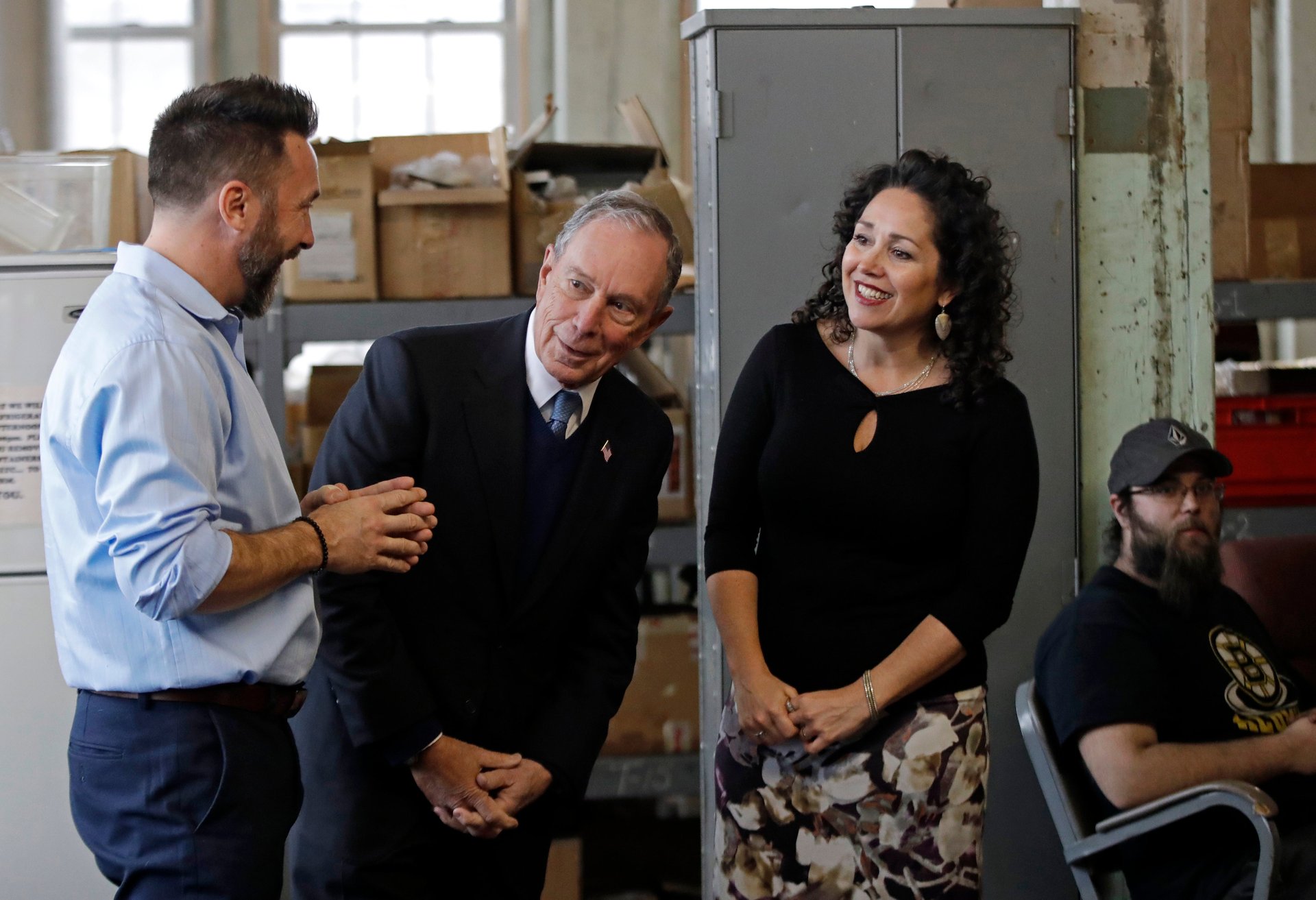Michael Bloomberg will gather “all the data” on voters, whether or not he runs for president
What is the most important political weapon that a fortune of several billion can buy you in 2019? A vast trove of voter data. And that’s what Michael Bloomberg is in the market for, the Atlantic reports.


What is the most important political weapon that a fortune of several billion can buy you in 2019? A vast trove of voter data. And that’s what Michael Bloomberg is in the market for, the Atlantic reports.
The 76-year-old media titan and former New York City mayor, whose net worth has been estimated at north of $47 billion, is once again considering a White House run. While he assesses whether his centrist politics stand a chance in the Democratic arena—a calculation partly dependent on whether his fellow center-left septuagenarian, former vice president Joe Biden, enters the race, too—he has started gathering data on American voters.
What data, you may ask? “All the data,” the Atlantic reports. At least that’s how it has been stated in private meetings, wrote Edward-Isaac Dovere, going on to describe a standing weekly gathering, in which 10 political and tech consultants have been working for months toward building a “new ‘tech stack,’ or system for processing and applying the data,” with a goal of fundamentally changing “the core Democratic infrastructure.”
According to the report:
The team wants to collect data about voters on an unprecedented scale, match those data with consumer data, and then hire a team of engineers to do high-level analyses, looking for new ways to identify potential voters, and new ways to appeal to them. They want to match voter data to consumer information and social-media profiles, and look for new ways to break through.
“Though a budget has not been set, this effort would almost certainly become the biggest and most powerful political organization in the country overnight,” writes Dovere.
If it all sounds a bit familiar, that’s no coincidence. The political consulting and data mining firm Cambridge Analytica, which used data ranging from fashion tastes to survey questions to sway voters and help get Donald Trump elected in 2016, appears to be a part of the impetus for Bloomberg’s effort. Dovere says it aims to be “the only real counter to the operation that Trump’s campaign put together in 2016.”
Still, there’s an important distinction: Cambridge Analytica acquired some of its data by collecting them on Facebook without the users’ consent, in violation of the platform’s terms. There’s no indication that Bloomberg’s organization would do anything of the sort.
But with a dearth of strong federal laws on data collection and data privacy in the US, there’s plenty of personal information available legally, and it appears that Bloomberg’s data initiative seeks to use it to similarly sway voters—on an even larger scale than what was done in 2016. Much is not known—and may not yet have been decided—about this gestating organization: Whether it will support a Bloomberg presidency or be mobilized on behalf of another Democratic candidate if Bloomberg doesn’t run; whether it will exist as a PAC aimed only at beating Trump, or endure beyond the 2020 election; and where and how all these data will be housed.
In any case, this trove of data would give Bloomberg, or whoever has access to it, an enormous advantage in terms of knowledge of the electorate, and the power to reach and sway voters in unprecedented ways. And it could raise some of the same concerns about privacy and democracy that were raised by the actions of Cambridge Analytica and Russian hackers during the 2016 election.